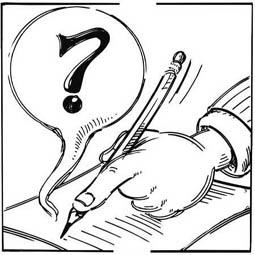Dear Diary: Journal Your Way to a Job
Published: May 29, 2012

If you've ever kept a food log, you were likely shocked by how much you actually eat all day. And how little of it was as healthy as you remembered it being.
Our careers, like our diets, are susceptible to selective memory. We tell the story of who we are at work, usually in job titles and descriptions we've heard others use. But what if we told our own story to ourselves? What would we find?
It takes effort to think our pasts and presents through for ourselves, and recording them is no small task. But writing out the experiences—choosing the details that are important, recalling and reliving related emotions—can be both cathartic and instructive.
On a small scale, few notes about your work life daily will certainly put you in better touch with how you work, what you're good at, and which parts of your task list drive you batty--all excellent topics to be prepared to discuss at job interviews.
So where to start?
Here are three quick writing prompts that can get you on the road to clearer, cleaner, and more positive cover letters and interviews:
1. Write about losing your job
You already know not to speak ill of your last job or boss. But whether you mean to or not, unresolved feelings about an old employment situation can peek through at your job interviews.
First off, quit ignoring any anger or sadness, and forgive yourself. There's nothing wrong with negative emotions. Give yourself permission to fully remember and process them: write out your side of an incident that burned you, or misunderstandings that still nag at you. Recall any mistreatment, explore embarrassment or belittlement you felt, vent. You can even draft a letter to your old boss, expressing what you'd like to say.
Then close the journal and move on. Or jot a few notes reinterpreting what happened in a more positive way. Were you stilted at that job? Always anxious? Research has shown that writing about traumatic events, from lay offs to breakups, doesn't just help you get over bad feelings, but empowers you. You'll come away with a sense of understanding, control, and best of all, the realization that it may been for the best.
2. Write about your day
Good or bad, doesn't matter. Describe the dynamics of your company's weekly meeting. Try writing your own "Day in the Life." Tell the story of the time Fed Ex was late with your client's presentation on the big meeting day and you spent half the day at Kinkos.
The objective here is to simply develop voice and self awareness. It's not always easy to talk about ourselves, and it can be tricky, as many of us aren't aware of what we actually sound like.
By writing your version of events at the office, you'll get practice building a point of view and succinctly describing what you're experience is. And bonus: you'll create a great window into your attitude, from an outside perspective. Just pop open the journal a few weeks later with fresh eyes and ask yourself, is this a person I'd want to hire?
If not, how would you adjust your attitude? What changes would you make in your approach to work, and how you speak about it?
Meanwhile, note the favorite parts of your work day. When does your mood peak, or crash? Jot down your hopes and fears for different assignments, or why you enjoy the tasks you love. These can all serve as gentle guidelines for finding the next job you'll love.
3. Script your fantasy interview
You know that cool, confident image you have of yourself at your dream interview? You're wearing your favorite suit, and you're really hitting it off with your interviewer. The conversation is relaxed but efficient, and you're delivering great answers through easy banter, casually dropping in an anecdote about your genius, last minute problem solving at that conference. You're relaxed, but on your game, and you're choosing the best examples, the most succinct descriptions, the most interesting stories.
Write that scene. Put into words your perfect answers to tricky questions. Envision the most confident, successful version of yourself and describe, specifically, what you look, sound, and feel like.
This isn't just wishful thinking—it's practice. By mentally walking yourself through a great experience, you're putting all the right moves on deck for your next real life interview, without the risk. And it can also help work out the kinks. Did you almost say something disparaging about your boss? Or say "actually" a lot? Now you know!
--Cathy Vandewater, Vault.com
Read More:
Why You Shouldn't Lie on Your Resume (and what happens to those who do)
To Tell the Truth: Is Honesty the Best Policy on a Job Interview?
How to Make the Most of a "Dead End" Job
